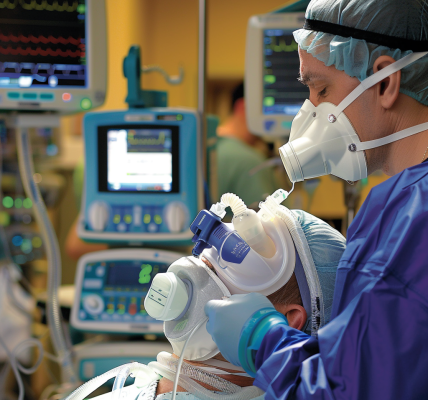The National Institute for Health and Care Excellence (NICE) has taken a significant step in the realm of digital health by provisionally approving two innovative technologies aimed at treating Tourette syndrome. This landmark recommendation marks a pivotal moment as it is reportedly the first time that NICE has endorsed digital therapies specifically designed for individuals suffering from chronic tic disorders and Tourette syndrome. The introduction of these technologies is expected to enhance the quality of life for many users.
The two approved technologies are:
- Online Remote Behavioural Intervention for Tics (ORBIT)
- Nepulse
ORBIT is an online program tailored for children and teenagers aged between nine and 17 years. The treatment spans a duration of 10 weeks and is facilitated by an online therapist. Participants engage in confronting the underlying triggers of their tics, which may include various thoughts, images, objects, or situations. This approach aims to equip young users with coping strategies to manage their symptoms more effectively.
On the other hand, Nepulse offers a more technological solution. This wearable device is designed for individuals over the age of 12 and is worn on the wrist. It connects to a mobile application and functions by delivering low-intensity electrical impulses to the median nerve, ultimately aiming to reduce the frequency and severity of tics. Users of Nepulse also have access to additional resources, including written and video guidance, as well as a dedicated helpline for support.
The need for these advancements in treatment options is underscored by a recent survey conducted by NICE, which gathered insights from over 1,500 participants, including individuals with lived experiences, caregivers, and parents. The findings revealed that the diagnosis of Tourette syndrome can be a lengthy process, often taking between six months to two years. Moreover, the survey highlighted the limited availability of current treatment options.
Mark Chapman, NICE’s director of HealthTech, emphasized the variability in diagnosis and treatment for individuals with chronic tic disorders and Tourette syndrome, which often depends on geographical location. He stated, “For many, it can take several months to receive a diagnosis, and our patient survey has highlighted that treatment options can be limited.” This inconsistency in access to care can be particularly challenging for families living in rural areas.
Chapman further explained that the committee’s recommendation of these two digital technologies could significantly expand treatment options for patients. He noted that the convenience of digital therapies could provide equitable access to care, regardless of whether individuals reside in urban or rural settings.
It is important to note that while these technologies present promising solutions, the first line of treatment for Tourette syndrome remains psychoeducation. Prior to utilizing either ORBIT or Nepulse, patients must undergo a clinical assessment by a general practitioner (GP).
In the UK, it is estimated that over 300,000 children and adults are living with Tourette syndrome. The introduction of these digital health technologies could potentially transform the landscape of treatment for this condition.
As of now, the technologies are still in the draft guidance phase, and NICE is currently conducting a consultation that is open until December 17. The outcome of this consultation will determine the final approval and availability of these technologies within the National Health Service (NHS).
This initiative by NICE represents a significant advancement in the integration of digital health solutions into the treatment of Tourette syndrome, paving the way for more accessible and effective care for those affected by this condition.





